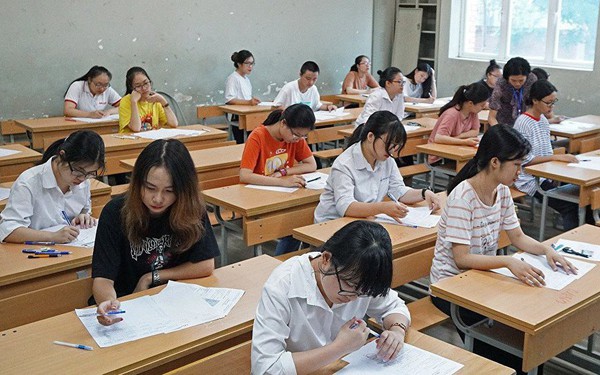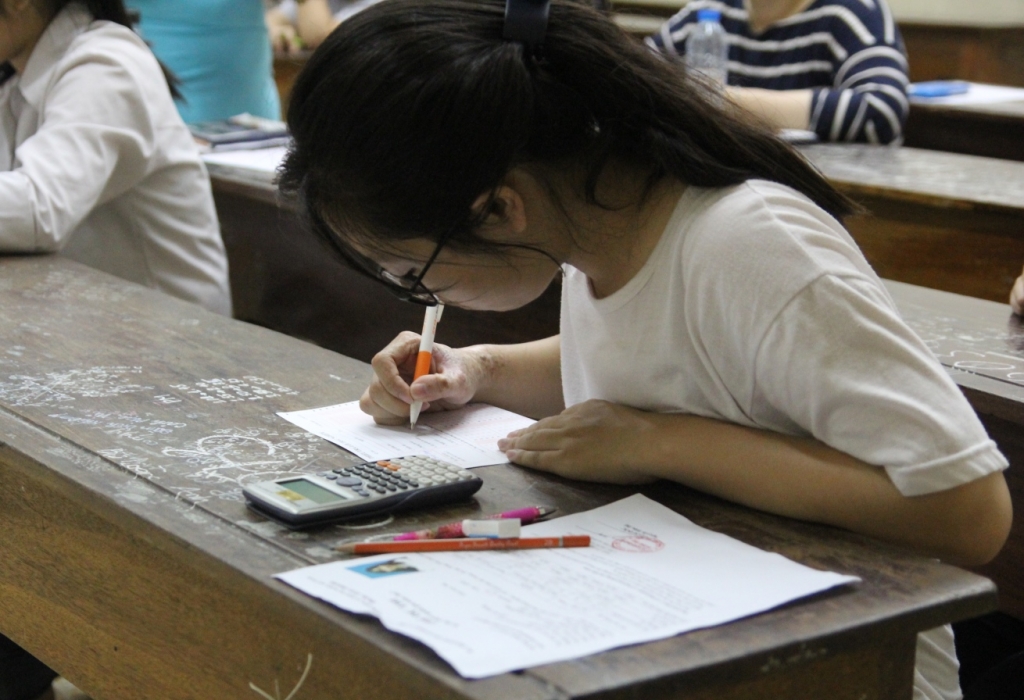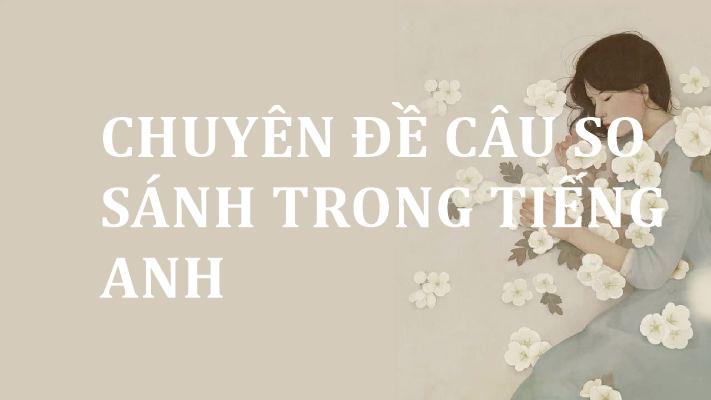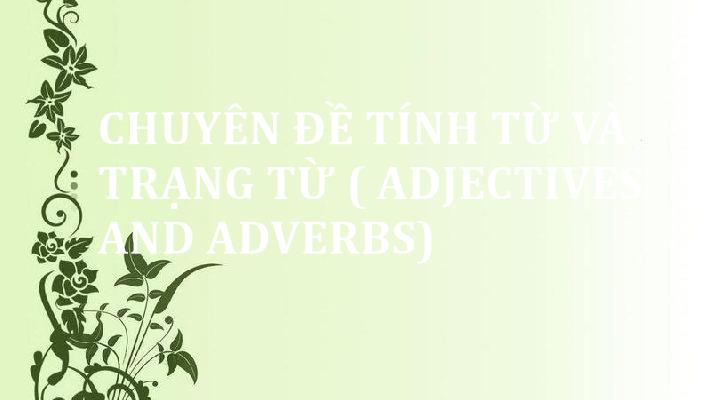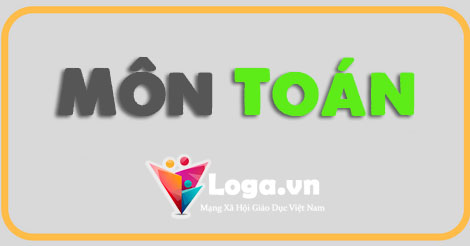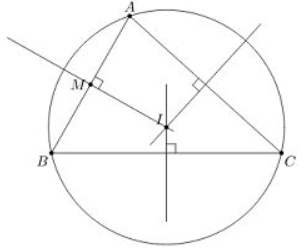GRADE 8
UNIT 4: OUR CUSTOMS AND TRADITIONS
I.Vocabulary:
1.accept (v) /əkˈsept/: chấp nhận, nhận
I offered her an apology, but she wouldn't accept it.
2.break with (v) /breɪk wɪð/: không theo
We decided to break with tradition and not spend Christmas with our family.
3.cockwise (adv) / kɒkwaɪz/: theo chiều kim đồng hồ
4.compliment (n) /ˈkɒmplɪmənt/: lời khen
That was an excellent meal! My compliments to the chef.
5.course (n) /kɔːs/: món ăn
A traditional British main course consists of a meat dish with potatoes and other vegetables.
6.cutlery (n) /ˈkʌtləri/: bộ đồ ăn (gồm thìa, dĩa, dao)
The cutlery is described here as of German make.
7.filmstrip (n) /ˈfɪlmstrɪp/: đoạn phim
This is a collection of filmstrips narrated on records.
8.host (n) /həʊst/: chủ nhà (nam)
She thanked the hosts for their hospitality
9.hostess (n) /ˈhəʊstəs/: chủ nhà (nữ)
10.generation (n) /ˌdʒenəˈreɪʃn/: thế hệ
That song was popular with people from my father's generation.
11.offspring (n) /ˈɒfsprɪŋ/: con cái
Tom's sister came over on Saturday with all her offspring.
12.oblige (v) /əˈblaɪdʒ/: bắt buộc
The law obliges companies to pay decent wages to their employees.
13.palm (n) /pɑːm/: lòng bàn tay
This tiny device fits into the palm of your hand.
14.pass down (v) /pɑːs daʊn/: truyền cho
His is a family trade, passed down from generation to generation.
15.prong (n) /prɒŋ/: đầu dĩa (phần có răng)
16.reflect (v) /rɪˈflekt/: phản ánh
The statistics reflect a change in people's spending habits.
17.sharp (adv) /ʃɑːp/: chính xác, đúng
The performance will start at 7.30 sharp.
18.sense of belonging (n) /sens əv bɪˈlɒŋɪŋ/: cảm giác thân thuộc
19.social (adj) /ˈsəʊʃl/: thuộc về xã hội
I had an active social life when I was at college.
20.spot on (adj, informal) /spɒt ɒn/: chính xác
"How old do I reckon she is? I'd say 38." "Spot on."
21.spray (v) /spreɪ/: xịt
She sprayed herself with perfume.
22.spread (v) /spred/: lan truyền
The fire spread very rapidly because of the strong wind.
23.table manners (n, plural) /ˈteɪbl ˈmænə (r)/: quy tắc ăn uống trong bàn ăn, phép tắc ăn uống
24.tip (n, v) /tɪp/: tiền boa, boa
The taxi driver was so rude to her that she didn't tip him.
25.unity (n) /ˈjuːnəti/: sự thống nhất, đoàn kết
Party unity is threatened when members will not compromise.
26.upwards (adv) /ˈʌpwədz/: hướng lên trên
She turned her face upwards to the sun.
27.You’re kidding! (idiom) /jʊə kɪdɪŋ/: Bạn nói đùa thế thôi!
II.Grammar:
1. Chúng ta dùng "should" với động từ nguyên mẫu (do, go...):
I should do a lot of homework tonight.
Dùng "should" giống nhau cho tất cả các ngôi:
I/ you/ he/ she/ it/ we/ they should come.
2. Thể phủ định là "shouldn't":
You shouldn't work all day.
They shouldn't spend so much money.
3. Chúng ta dùng "I should" hoặc "we should" để đề nghị những điều tốt chúng ta nên làm:
I should go home. It's midnight.
We should invite them to our wedding.
Chúng ta dùng "I" hoặc "we shouldn't" để nói về những việc không nên làm vì chúng không có lợi cho chúng ta:
I shouldn't eat so much food.
Chúng ta dùng "should/ shouldn't" để đưa ra lời khuyên:
You should look for a better place to eat.
You shouldn't swim in this river.
"Should" được dùng có tác dụng không mạnh mẽ bằng "must" hoặc "have to".Hãy so sánh:
You should drink more milk. (It's a good idea.)
"You must drink more milk," said the doctor. (It's very important.)
4. Chúng ta sử dụng dạng câu hỏi "should I/ we ...?" để xin lời khuyên:
What should I say to Fred?
I need a new passport. Where should I go?
5. Chúng ta có thể nói "I think we should", "I don't think you should" v.v... khi đưa ra ý kiến:
I think we should get two tickets.
I don't think you should believe everything he says.
Chúng ta thường không nói: I think you shouldn't
6. Chúng ta có thể sử dụng "do you think I should ...?" để xin lời khuyên:
Tom hasn't replied to my letter. Do you think I should phone him?
What do you think I should send Alisa for her birthday?
Ngữ pháp mở rộng:
Diễn tả sự bắt buộc (obligation) và lời khuyên (advice): MUST, SHOULD, HAVE TO
MUST + V: được dùng để diễn tả sự bắt buộc xuất phát từ bản thân người nói
Ví dụ: I must do homework today so that I can be totally free tomorrow.
* Lưu ý: khi diễn tả sự bắt buộc trong quá khứ, must dùng thay thế bằng had to + V, didn't have to + V
Ví dụ: I had to wear uniform when I was a pupil at primary school.
* Lưu ý: Mustn't + V: diễn tả sự ngăn cấm
Ví dụ: You mustn't smoke in hospital.
HAVE TO / DON'T HAVE TO + V: diễn tả sự bắt buộc xuất phát từ nhân tố bên ngoài. Lưu ý have to không phải là modal verb nên động từ phải chia theo chủ ngữ.
Ví dụ: Chilren have to wear uniform to school.
My mom doesn't have to work on Sunday.
* Lưu ý: có thể dùng have got to + V, need to + V, be supposed to V với ý nghĩa tương đương.
* Lưu ý: ở thể phủ định, bên cạnh don't have to + V, don't need to + V còn có thể dùng needn't + V. Trong trường hợp này, needn't hoạt động như một modal verb và không cần chia theo chủ ngữ.
Ví dụ: She needn't attend this English course because she did her MBA course in Australia.
OUGHT TO + V: diễn tả sự cần thiết phải thực hiện hành động
Ví dụ: You ought to report to her at work.
* Lưu ý: OUGHT TO thường không dùng ở dạng phủ định.
SHOULD / SHOULDN'T + V: diễn tả lời khuyên
Ví dụ: You shouldn't overspend, or you will be in debt.
You should take his advice.
SHOULD HAVE P2 / SHOULDN'T HAVE P2: diễn tả hành động lẽ ra nên được thực hiện trong quá khứ nhưng đã không được thực hiện (à điều kiện không thật).
Ví dụ: You should have thanked her for her help. (but you didn't thank her).
NEED HAVE P2 / NEEDN'T HAVE P2: diễn tả hành động lẽ ra cần được thực hiện trong quá khứ nhưng đã không được thực hiện (à điều kiện không thật).
Ví dụ: You need have brought your raincoat. It is raining now (you didn't bring your raincoat).
* Lưu ý: phân biệt didn't need to và needn't have P2: didn't need to diễn tả việc bạn biết là không cần làm và bạn có thể lựa chọn làm hoặc không làm; needn't have P2 diễn tả việc bạn không biết là bạn không cần làm nhưng bạn đã làm.
Ví dụ: We didn't need to work overtime yesterday because we still had a lot of time for our project.
We needn't have taken so much food for our picnic. There was a very good cafeteria there.
OUGHT TO HAVE P2: diễn tả hành động lẽ ra phải được thực hiện trong quá khứ nhưng đã không được thực hiện (à điều kiện không thật).
Ví dụ: You ought to have done your homework yesterday (but you didn't do it).
Exercise 1: Hoàn thành những câu sau, sử dụng "should" hoặc "should't" và những từ trong ngoặc đơn ( ).
Ex: You shouldn't study (You/ study) so hard. Have a holiday.
1. ____________________(You/ park) here. It's not allowed.
2.What________________ (I/ cook) for breakfast this morning?
3. ________________(You/ wear) a raincoat. It's raining outside.
4._________________(You/ smoke). It's bad for you.
5. ________________(We/ arrive) at the airport two hours before the flight
6. ________________(I/ send) now or later?
7. Do you think________________ (I/ apply) for this post?
8. What do you think_____________(I/ write) in this space on the form?
9._______________ (I/ eat) any more cake. I've already eaten too much.
10. This food is awful._____________(We/ complain) to the manager.
Key:1.You shouldn’t park
2.Should I cook
3.You should wear
4.You shouldn’t smoke
5.We should arrive
6.Should I send
7.I should apply
8.I should write
9.I shouldn’t eat
10.We should complain
Exercise 2: Frank đang nấu ăn. Hãy đưa ra vài lời khuyên hữu ích. Sử dụng "you should" hoặc "you shouldn't" và những ghi chú trong hộp.
|
You shouldn't leave the beef in the oven for more than one hour.
- ___________ the onions as thin as possible.
- _____________ fresh herbs and fresh vegetables.
- ___________ in too much salt and chilies.
- ___________ until the water boils before you put the vegetables into it.
- ______________ the oven before you put the beef in.
- ____________ the beef into a lot of equal slices.
Key:1.You should cut 2.You should use 3.You shouldn’t put 4.You should wait 5.You should heat 6.You should cut
Exercise 3:Make sentences, using the words and phrases provided. You can add some words or make changes.
1.Tipping/ now custom / Viet Nam/ so / you/ not/ have/ tip/ if/ don’t want .
2.However/ some/ people/ tip/ because/ they/think/ service / good.
3.In/ countries/ tipping/ be/ usual/ thing.
4.For example/ in/ us/ people/tip/ 15/ 20 per cent/ of/ bill/ in/ restaurant/ café.
5.Reason/ be/ in/ us/ waiter/ waitress/ be/ pay/ less/ minimum wage .
6.In Brazil/ standard/ tip/ in / restaurant / be/ 10 percent.
7.How/ this/ be/ usually/ include/ in/ bill.
8.At/ hotel/ 10/15 percent/ Service charge/ be/ include/ in/ bill.
Key:
1.Tipping is not a custom in Viet Nam, so you don’t have to tip if you don’t want to.
2.However, some people tip because they think the Service is good.
3.In some countries, tipping is a usual thing.
4.For example, in the us people tip because they think the Service is Good.
5.The reason is that in the us waiters and waitresses are paid less than the minimum wage.
6.In Brazil, the standard tip is restaurant is 10 percent.
7.However, this is usually in cluded in the bill.
8.At Hotels, a 10 to 15percent Service charge is included in the bill.
Exercise 4: Complete the sentences with the correct form of have to or must
1.My mother always tells me that I_____be home by 9:00 p.m.
2.You____be late for school.
3.She_______wear that costume because it’s the family tradition.
4.In the past, men______wear Ao dai,but today they ______wear it.
5.Before leaving the dinning table,______your son______ask for permission?
6.In India, you____shake hands with women, especially in rural areas. It is a taboo.
Key:1.have to 2.must 3.has to 4.had to/don’t have to 5.Does your son have to 6.have to
Exercise 5: Find a mistake with have to, should ,or must in each sentences and correct it:
1.Under the new regulations,workers have wear protective clothes.
2.When you come to Brazil, you should to tip the waiters 10% of the bill.
3.When eating in India,you shouldn’t always use the right hand. Never use the left hand.
4.In Australia, you mustn’t to comment on a person’s accent.
5.In my family,children has to get the permission before leaving the dinning table.
6.When we were young, we have to stand in a row to greet guesses.
Key:1. Have =>> have to
2.should to =>> should
3. shouldn’t =>> should
4. mustn’t to =>> mustn’t
5. has to =>> have to
6. have to =>> had to

